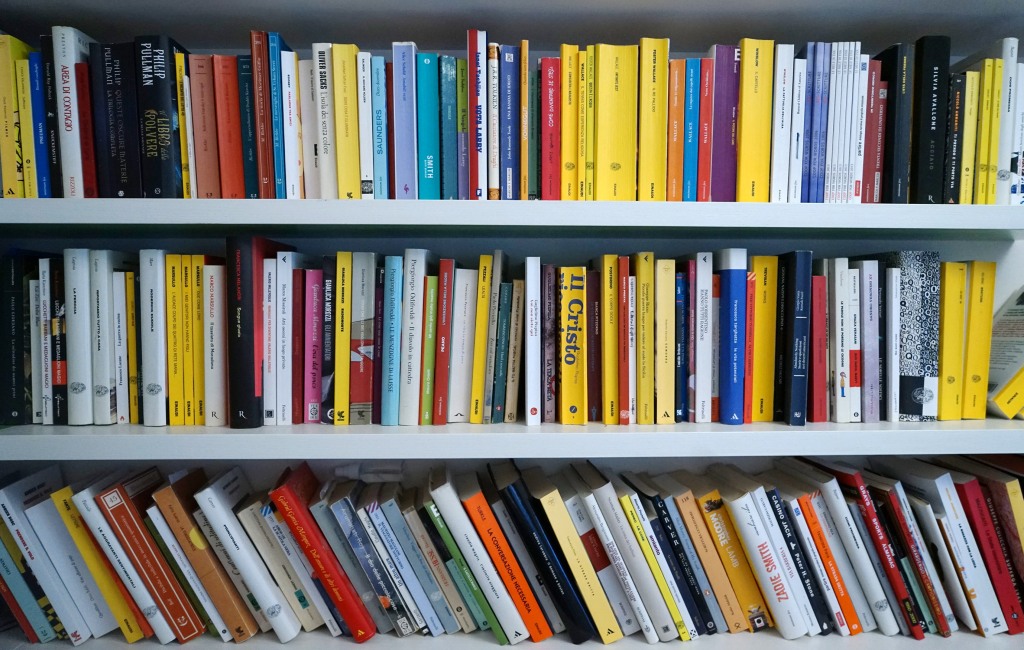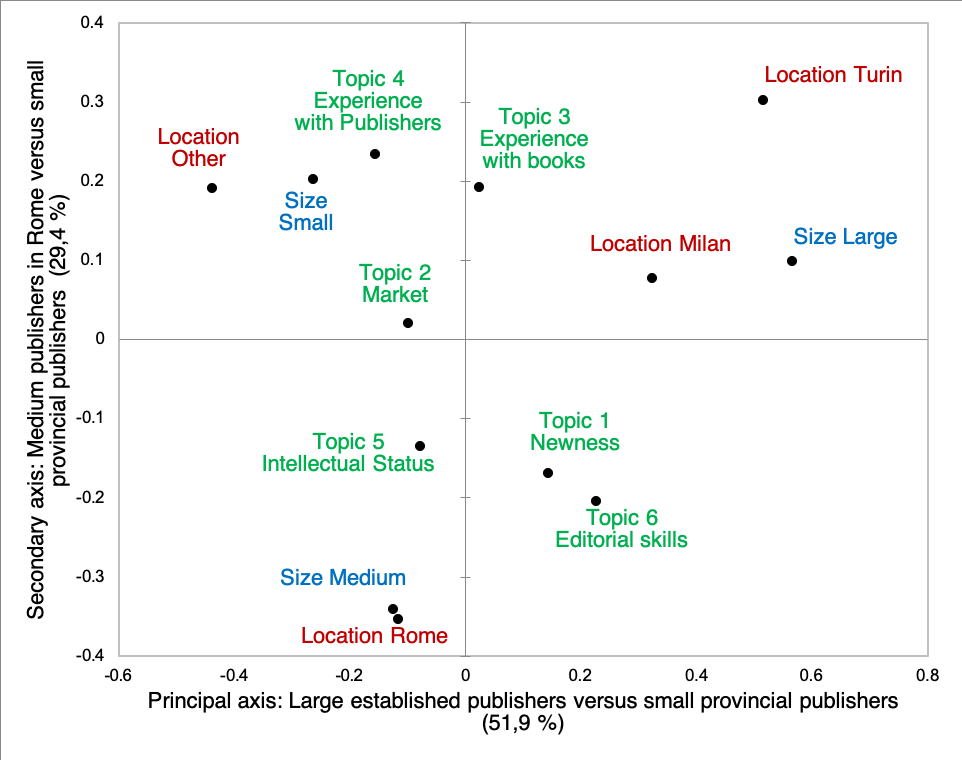By Luca Pareschi and Maria Lusiani

The supposed conflict between aesthetic values and market logics has long been heating the debate among scholars in the cultural and creative industries: while over time researchers provided a more nuanced picture of the market-aesthetic logics tension, able to go beyond a prosaic conflict between the two extremes, some questions remain open. In this work we try to understand how editors in the publishing industry deal with market and aesthetic logics when they are interviewed regarding their work. Also, we address the organizational characteristics that may affect the editors’ discourses.
One of the authors that are cited more often, when dealing with cultural production, is the French sociologist Pierre Bourdieu, who distinguished between fields of cultural production animated by aesthetic logics and fields of production of more commercial cultural goods that respond to market logics (Bourdieu, 1983). While this neat distinction was taken for granted for long, scholars recently started to question it, and the published research depicts now a more nuanced image (Verboord et al. 2015). Some scholars argue for a struggle between logics, with the commercial one gaining strength; others describe a blending of values, with market and aesthetic values coexisting and complementing each other. Thanks to these researchers we have now a better description of how things go in a field of cultural production. Nonetheless, there are several things that we do not know yet.
In this paper, we focus on editors, who are professionals that work within publishing houses searching, selecting and acquiring books for publication. They work on the texts together with the authors (editing) to develop the content of a book, maintain good working relationships with authors, and work together with marketing staff to promote books. Editors are a key part in the process of book publishing, and they have the final say in evaluating the potential of books. We focus on these professionals, as we said, and in particular on how they portray their work. Specifically, we want to understand which manifestations of market and aesthetic logics are found in editors’ public descriptions of their work. Also, we want to understand which characteristics of the field, such us the kind of publisher, or of the editors, such as the gender, affect the way editors describe their work.
We collected 87 interviews with Italian editors discussing their work, published on-line in literary magazines between 2007 and 2014, and we analyzed them through two methods. First, we used Topic Modeling, which is a semi-automated way to analyze texts, which combines the power of computer-aided analysis, and the depth of human analysis of texts (DiMaggio et al., 2013). Through this technique we were able to systematically find the themes addressed by editors. Also, we used another technique, widely used by sociologists of culture, which is called Multiple Correspondence Analysis, and that permitted use to visualize and better interpret our results (see Figure 1).

The first of our results is that, rather than incorporating a market discourse, editors mostly refer to aesthetic values, experience with books and publishers, intellectual status and skills, depicting their job. Considering the strong marketization of the Italian publishing industry, we would have expected the aesthetic logic to be less powerful, but it hardly disappears or even blends with market logics.
Another unexpected result regarded the correspondences between editors’ discourses and individual or organizational characteristics: while we did not find any relationship between discourses and personal features, we found that publishers’ sizes account for different discourses. In particular, editors working for medium-sized publishers refer more often to aesthetic issues, while editors working for large publishers stress personal experience, and only editors working for small publishers explicitly refer to the market logic. Moreover, in the Italian case, we found that the geographical location is important, as editors working for publishers located in the same area tend to refer to the same themes in their interviews. We think that our results are interesting, since they signal how characteristics of the organizations shape the balance between art and market that we find in editors’ public interviews. Of course, while analyzing our data, we considered that these interviews are directed to a target; therefore editors can act strategically when describing their work, silencing and amplifying the elements with which one desires to be the least or most associated with.
About the authors:
Luca Pareschi is an Assistant Professor at the Department of Management and Law at The University of Rome Tor Vergata, Italy.
Maria Lusiani is an Associate Professor at the Department of Management, University of Venice Ca’ Foscari, Italy.
This article is based on:
Pareschi, Luca and Lusiani, Maria (2020). What editors talk about when they talk about editors? A public discourse analysis of market and aesthetic logics. Poetics, 81, article 101444. https://doi.org/10.1016/j.poetic.2020.101444
About the image:
Picture by the authors.
Leave a Reply